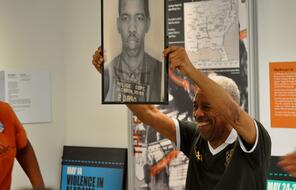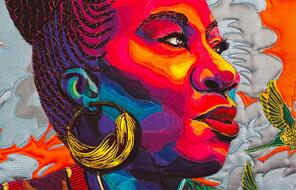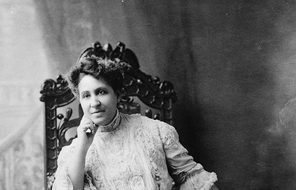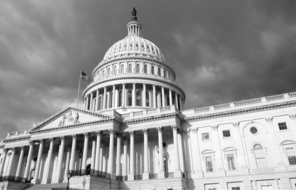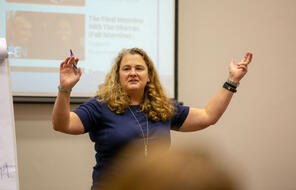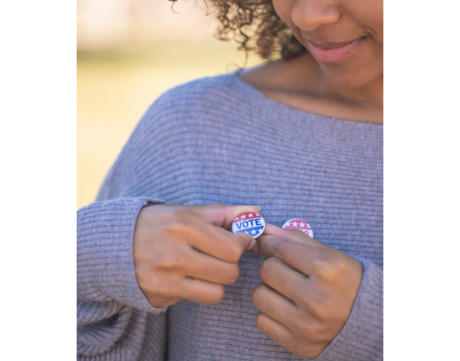
Approaching Election Season as a Teaching Opportunity
“Super Tuesday” is one of the most significant days within the primary voting season. The “Super” behind Super Tuesday lies in the fact that fifteen states and one US territory all vote on this single day. This major wave of primary voting is often a make or break moment for many Democratic and Republican candidates for each presidential contest. But, while primary voting is especially highlighted for its choice of presidential candidates, it also includes selections for many other state and local candidates who will appear on November’s ballot.
And coming on the heels of this major election milestone this year is the second annual Civic Learning Week, a five-day push to provide educators, young people, and lifelong learners with information and resources that up engagement levels and awareness of our democratic system. Civic Learning Week also serves as a reminder that civic learning and participation are important year round and beyond elections. “More than ever, civic learning is needed to ensure each and every person across this country has the necessary tools to engage as members of our self-governing society.”
Facing History + Civic Learning Week
Monday, March 11 - Friday, March 15
Facing History is one of the “Champion” level sponsors of Civic Learning Week—this partnership extends the lessons we’ve created around Promoting Democracy to more classrooms in order to model the power of democracy and the importance of its preservation.
A great way to take advantage of Civic Learning Week and all the information being shared is to start collecting and curating resources around teaching the 2024 election and civic education. Facing History’s US History Curriculum Collection: Democracy & Freedom can help you begin your elections outlines and lesson planning.
Plan out Your Civics Week:
Monday, March 11 │ 7 pm - 8 pm ET
Connect live with Facing History and social studies teachers everywhere during the weekly #sschat hosted on X.
Tuesday, March 12 │ 7 pm - 8 pm ET
We are partnering with the National Constitution Center for their virtual Expanding Civic Circles event. Teachers with firsthand experience will share their insights into building connections with various cultural and civics-based organizations. Free Registration Here
Thursday, March 14 │ 7 pm - 8 pm ET
Join Facing History and our partners at the Civic Imagination Project to explore how you can elevate principles of civic education to empower your students to envision a better world. Free Registration Here
Teaching Elections through the Lens of Different Class Subjects
Incorporating election-related content into various subject areas allows students to develop a well-rounded understanding of the democratic process. Civics, history, and social studies offer natural on-ramps to teaching about elections as these disciplines consider the role of elections in shaping society. But other subjects have a lot to gain by integrating elections into their lessons. There are many tie-ins to elections for English Language Arts (close reading, media literacy), mathematics (statistical analysis), and even social science courses (human behavior and the psychology of voting).
Preparing to Teach about Elections
As you prepare to teach this year’s elections, leveraging key moments like Super Tuesday and resource sharing opportunities like Civic Learning Week can help lay the groundwork for engaging students and deepening their enthusiasm for actively participating in our democracy. Additional election milestones include primaries that happen outside of Super Tuesday, debates, voter registration deadlines, early voting, and election day itself.
Facing History’s Teaching Resources for the US Elections Collection presents a comprehensive and modular set of materials to assist in your civic lessons. The US Department of Education also just released a Promotion of Voter Participation for Students Toolkit that lists resources for K-12 institutions.
Additionally, these focal points can inspire conversation, research projects, and civic engagement activities.
- Developing Critical Thinking and Media Literacy Skills
By analyzing campaign advertisements, speeches, and media coverage, students can learn to evaluate journalistic sources, identify biases, and distinguish between fact and opinion. They can also engage in discussions, honing their ability to construct well-reasoned arguments and consider multiple perspectives with civility.
- Fostering Civic Engagement and Participation
Teaching about elections can instill a sense of civic responsibility and encourage students to actively engage in their communities. Options for educators to drive interest include putting on mock elections, organizing voter registration drives, or designing community service projects to provide hands-on experiences that foster a sense of agency and upstanding.
- Promoting Informed Decision-Making and Responsible Citizenship
Learning about our democratic process helps students grow awareness of their rights and the ways in which their participation can make a difference in their schools, neighborhoods, and the wider world. By examining candidates' platforms, students can research and analyze policy proposals and develop more informed decisions—which includes asking nuanced questions.

